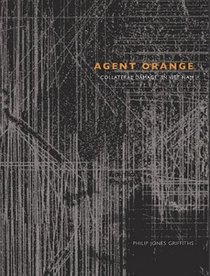Search -
Agent Orange: Collateral Damage in Vietnam
Agent Orange Collateral Damage in Vietnam
Author:
Philip Jones Griffiths, for a record five years the President of Magnum Photos, created in Vietnam, Inc. a record of the war there of almost Biblical proportions. No one who has seen it will forget its haunting images. In Agent Orange he has added a postscript that is equally memorable. In 1960 the United States war machine concluded that an e... more »
Author:
Philip Jones Griffiths, for a record five years the President of Magnum Photos, created in Vietnam, Inc. a record of the war there of almost Biblical proportions. No one who has seen it will forget its haunting images. In Agent Orange he has added a postscript that is equally memorable. In 1960 the United States war machine concluded that an e... more »
ISBN-13: 9781904563051
ISBN-10: 1904563058
Publication Date: 7/2/2004
Pages: 176
Rating: ?
ISBN-10: 1904563058
Publication Date: 7/2/2004
Pages: 176
Rating: ?
0 stars, based on 0 rating
Genres:
- Arts & Photography >> Photography & Video >> Photographers, A-Z >> General
- Arts & Photography >> Photography & Video >> Photo Essays
- Arts & Photography >> Photography & Video >> Photojournalism
- Arts & Photography >> Photography & Video >> Portraits
- Arts & Photography >> Photography & Video >> Travel >> Asia
- Arts & Photography >> Photography & Video >> Travel >> Far East
- Arts & Photography >> Photography & Video >> Travel >> General
- History >> Asia >> Vietnam >> General
- History >> Military >> Vietnam War




